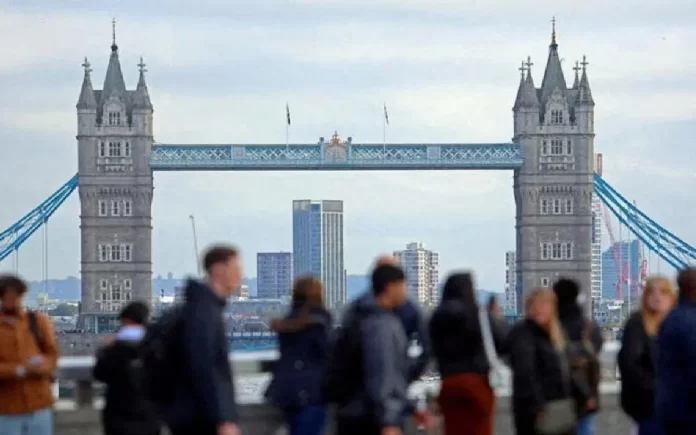London: Official data has confirmed that Britain’s economy experienced a mild recession last year, presenting Prime Minister Rishi Sunak with the task of reassuring voters about economic stability ahead of an anticipated election later this year.
According to the Office for National Statistics (ONS), gross domestic product (GDP) contracted by 0.1% in the third quarter and by 0.3% in the fourth quarter of 2023, consistent with earlier estimates.
These figures come as a blow to Sunak, who faces criticism from the opposition Labour Party, currently leading in opinion polls, which has labeled the economic downturn as “Rishi’s recession.”
Although January saw a modest 0.2% GDP growth from December, and unofficial surveys indicate continued growth in February and March, the UK’s recovery from the COVID-19 pandemic has been sluggish. As of late 2019, the economy remains only 1% larger, with Germany being the only G7 nation experiencing a worse performance.
The overall economic growth for 2023 was a mere 0.1%, marking the weakest performance since 2009, excluding the significant GDP drop in 2020 due to the pandemic.
The Bank of England, anticipating a decline in inflation that would enable interest rate cuts, projects a meager 0.25% growth for the economy this year. In contrast, official budget forecasters anticipate a more optimistic expansion of 0.8%.
Following the release of the data, the value of the pound remained relatively stable against the U.S. dollar and the euro.
Thursday’s statistics also revealed a 0.7% increase in households’ real disposable income compared to the previous quarter, accompanied by a slight rise in the savings ratio to 10.2% in the final three months of 2023.



